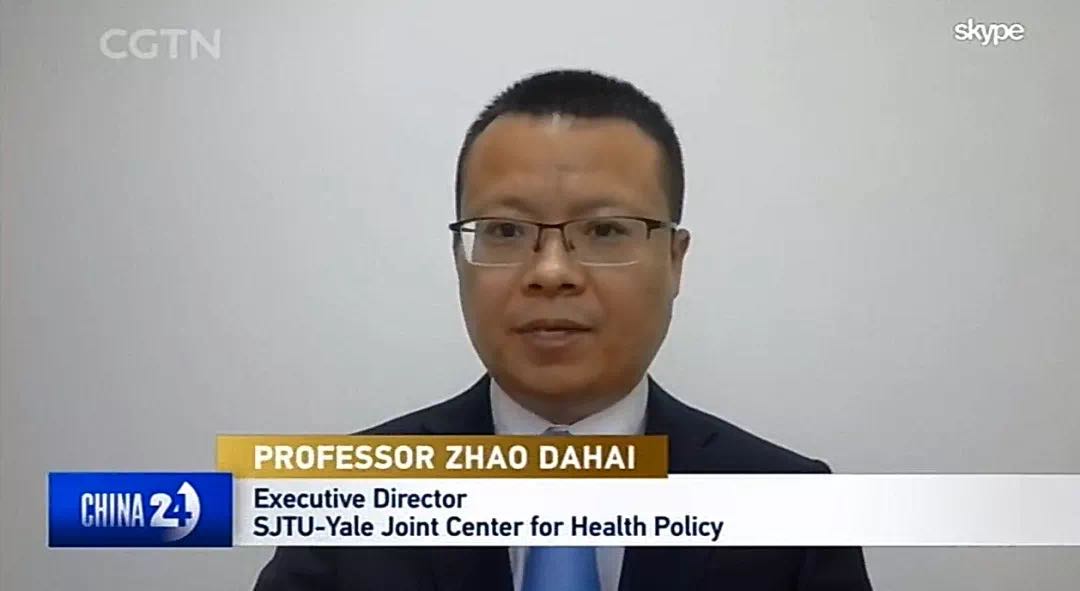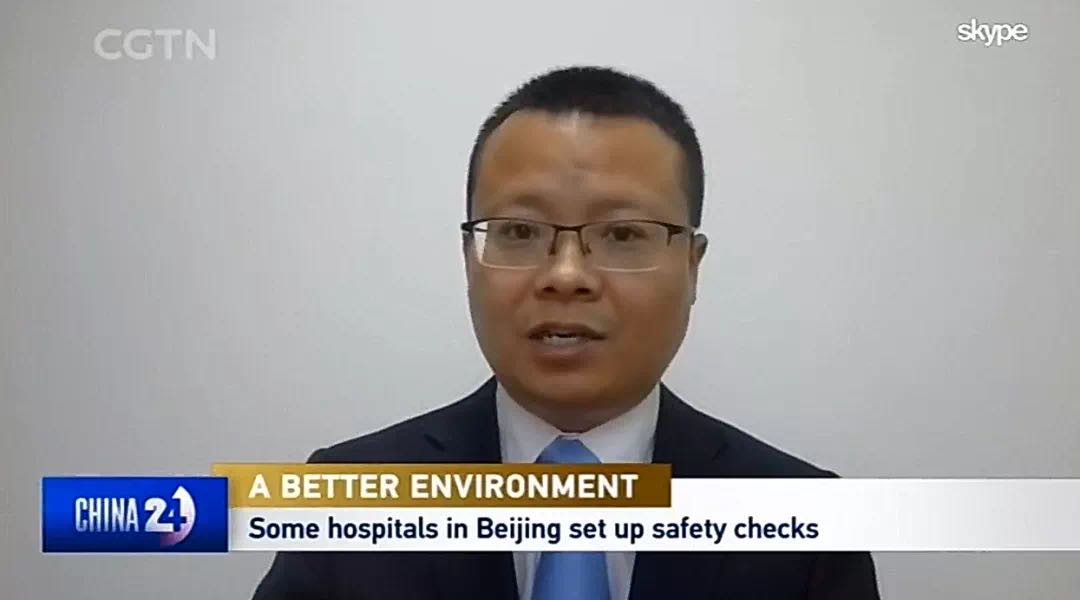上海交大赵大海关于新冠疫情第44次在电视台访谈评论:新冠疫情映照尊医重卫刻不容缓
上海交通大学国际与公共事务学院博士生导师、上海交通大学-耶鲁大学卫生政策联合研究中心执行主任赵大海,对于新冠肺炎疫情暴发与防控第27次在中央电视台进行直播评论,也是第44次在央视、上视进行访谈评论。在2020年7月2日,赵大海在中央电视台英语频道《中国24小时》节目,就暴力伤医、医患关系的话题进行了直播评论。现将访谈内容翻译并摘录如下。
主持人:你认为频繁暴力伤医的主要原因是什么?
赵大海:首先,医院是世界范围内受暴力攻击风险最高的工作场所之一。根据传统的暴力攻击理论,病人在医院时的生理和心理挫折被证实与肢体攻击他人呈正相关关系。因此,在医院的病人或病人家属暴力攻击的概率要比在其他场所要高很多。其次,公众对医务人员的信任度较低。此前在中国和其他一些国家的实证研究充分证实,由于公众对卫生系统逐利性工作动机和低效率的既定看法,患者对医务人员的信任度正在下降。再次,关于针对暴力伤医的预防机制尚未建立。此外,还需要建立医患纠纷处理的快速和有效办法。
主持人:除了在医院设立安全检查等措施外,政府还可采取哪些措施来营造一个更好的医院运行环境?
赵大海:首先,政府需要营造一个公众尊重医务人员的社会环境。在抗击新冠肺炎大流行期间,各级政府可以利用公众把全国大多数医护人员视为白衣天使的机会来进行大力宣传。医护人员在抗击新冠肺炎期间所表现的英勇无畏和无私的事迹,应该为全中国人民所了解和理解。其次,政府应重视患者在医院就诊期间的体验。大多数医患纠纷来自于患者的就诊不满意。如果患者有一个值得信赖的渠道来表达自己的不满,大多数针对医务人员的暴力攻击是不会发生的。再次,需要建立预防和惩罚暴力伤医的法律。美国和英国等多个国家已颁布了专门针对于暴力伤医的严格法律,而中国还没有相关的法律法规。目前我国对大部分暴力伤医案件的轻微或不处罚无法在全社会营造出暴力伤医零容忍的氛围。
供稿者:国务学院
日期:2020年7月3日
Dahai Zhao' 44th comments on TV during the Pandemic: COVID-19 reflects the urgent need for respecting doctor
Dahai Zhao, a doctoral supervisor at School of International and Public Affairs of Shanghai Jiao Tong University and Executive Director of Shanghai Jiao Tong University-Yale University Joint Research Center for Health Policy, has been interviewed by CGTN for the 27th time (the 44th time by CGTN / ShanghaiTV) since the COVID-19 pandemic. On July 2, 2020, Zhao commented on violence and the relationship between doctors and patients on “China 24”.
Anchor: What do you think are the major reasons behind the constant stream of injuries?
Zhao: First, the hospital is one of the highest risk workplaces of being attacked in the world. According to the traditional aggression theory, compared with other workplaces, patients or patient family members at hospitals have a higher aggression probability, because patients’ physical and psychological frustrations are confirmed to be positively associated with their physical aggressions. Second, public or patient trust in healthcare workers is at a low-level. Previous studies in China and a couple of other countries fully confirm that patient trust is decreasing due to the public perceptions on the health system’s for-profit operation and low efficiency. Third, the preventive mechanism on violence against healthcare workers has not been built. In addition, the fast and efficient methods on dealing with physician-patient disputes are also needed to be built.
Anchor: Besides setting up security checks and other measures, what could the government do to build a better hospital environment?
Zhao: First, the government needs to build a good social environment that the public respects healthcare workers. I believe the government can use the opportunity that the public regards most healthcare workers in the whole country as angels in white during the combating COVID-19 pandemic. The heroic, brave and unselfish deeds what healthcare workers did in combating COVID-19 should be fully known and understood by all Chinese people. Second, the government should pay attention to the patient experience when patients are treated in hospitals. Most physician-patient disputes are from patients’ dissatisfactions If patients have a trusted channel to express their own dissatisfactions, most violence against healthcare workers would not have occurred. Third, the law on preventing and punishing violence against healthcare workers is needed. A couple of countries such as the US, the UK have enacted strict laws on violence against healthcare workers. In China, we have no related laws. The minor or no penalty in China can not play the proper role in building the social environment that violence against healthcare workers is zero-tolerance.
Contributor: SIPA, SJTU
Data: July 3

